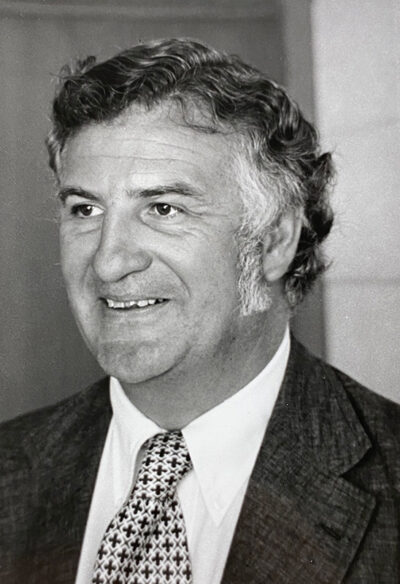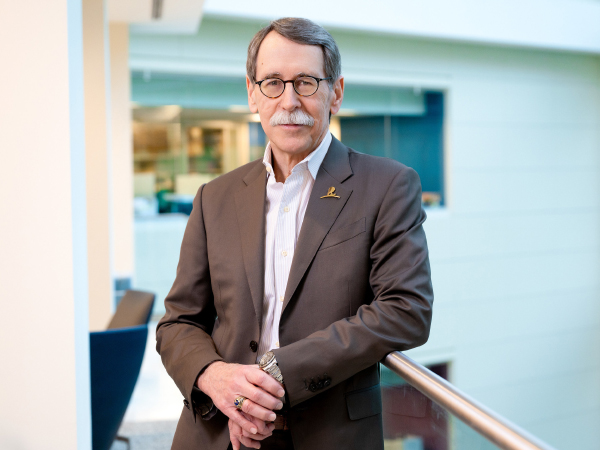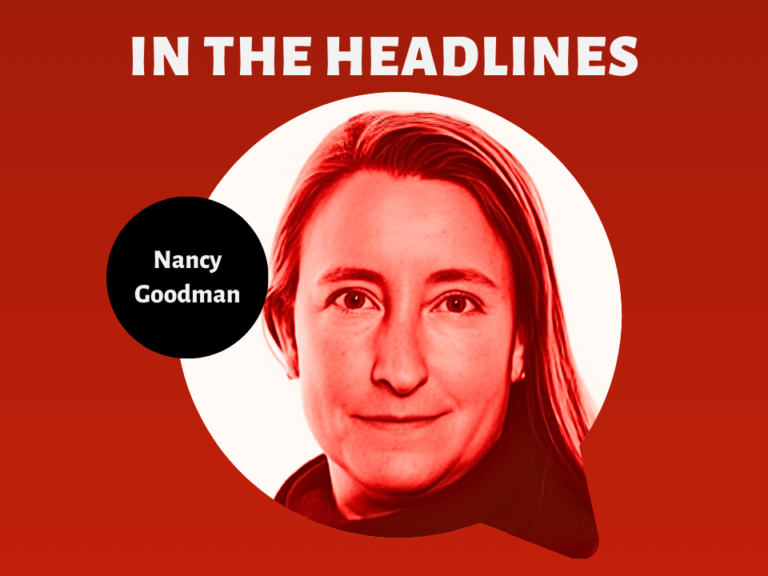With the aid of a cane, Dr. Lucius Sinks moved briskly through the dining room at the Boar’s Head Inn in Charlottesville, VA. At the time, he was well into his ’80s. But he remained a formidable presence, with thick white hair, dark eyes, and a wry smile.


When I was writing “Cancer Crossings: A Brother, His Doctors, and the Quest for a Cure to Childhood Leukemia,” Lucius Sinks was a doctor I needed to talk with. After all, he had been chief cancer research pediatrician during my brother Eric’s time at the Roswell Park Cancer Center in Buffalo, NY. Lucius was one of the medical “giants” from that era in cancer research, which included Donald Pinkel, Jerome Yates, Jim Holland and his wife, Jimmie, and a few others. By working together, they took childhood cancer, specifically acute lymphoblastic leukemia, from a 10% survival rate to a 90% “cure” rate.
Transcripts of Wendel’s interviews with Lucius Sinks appear here.
The term “moonshot” is used these days when it comes to cancer research. How a concentrated effort of expertise, education and money could move us closer to a cure. What’s forgotten is that such progress happened a half-century ago and Lucius Sinks was a major contributor to that groundbreaking effort.
On that day at the Boar’s Head Inn, Lucius had a white canvas bag with him.
“I brought you some homework,” he said, placing the bag with a thud between the place settings.
I reached inside and pulled out a regular-size book with a blue cover. It was entitled Conflicts in Childhood Cancer: Volume 4. Lucius was one of co-authors.
“You can hang on to that one,” Sinks said. “The other tome I’ll need back at some point.”
And a tome it was. So cumbersome that I struggled with both hands to lift the heavy book out of the bag. Cancer Medicine: Second Edition was the title of this one and it also had two authors, James F. Holland and Emil Frei III. With a reddish hardcover, it topped out at whooping 2,465 pages.
Lucius chuckled at the look on my face.
“I don’t expect you to read it all,” he said as we sat down, with the two books sitting in the middle of the table between us. “But you’re beginning to ask the right kinds of questions. This material will help.”
The readings did help. But, more importantly, so did the dozen lunch meetings Lucius and I had as I was writing Cancer Crossings. He opened up this golden age of research for me, patiently explaining the science and sometimes difficult decisions that were key to our understanding of cancer and advancement in treatment.
Dr. Lucius Sinks died Friday at St. Mary’s Hospice in Watkinsville, GA, outside Atlanta. He was 91.
As a boy, Lucius grew up on the North Shore of Boston. In the winters, skating and playing hockey soon became one of his first passions. When the marshland near his home in Marblehead froze, he became adept at dodging between the cattails and tall grasses and somehow keeping control of the puck. Even back then, he was solidly built and had no doubt that he would have excelled in the game if the family had stayed in the Boston area.
When Lucius was 13 years old, his father, Allen, suffered a brain aneurysm. Lucius was away at summer camp on Cheboygan Lake in Maine when it occurred, and his father died within a few days. Today, a CAT scan could have located the slight rupture in the brain and a simple procedure would have probably saved him. That was far from the case in 1944, though. After his father’s death, the family moved to Columbus, OH, to be closer to family and began again. After high school, Sinks went on to Yale, graduating in 1953, and on to a fellowship at Cambridge in England before coming to Roswell Park in September of 1966.
“A lot of academic people were against what we were trying to do,” Lucius once told me. “They really didn’t understand some of the methods we deployed against the cancer and, as a result, there was considerable resistance. Some pediatricians even refused to refer their kids to us. Many of them didn’t believe it what we were doing. Not one iota.”
With so few doctors and hospitals nationwide willing to take on cancer at the time, Roswell Park often turned to doctors from overseas. Lucius Sinks was in charge of this program.
“At times I felt like I was running my own version of the United Nations,” he recalled. “At one point, I even had two guys from Ireland, one Protestant and the other Catholic, and the fur would fly between those two. But I got a great deal of satisfaction out of working closely with my colleagues at Roswell Park because we shared a philosophy that we could make a difference, that some real results could be seen if we stayed after it.”
Despite the wide range in backgrounds and approaches, Lucius said, “We were able to come together at Roswell Park and help the kids. As long as we kept focused on the kids, progress was made.”











